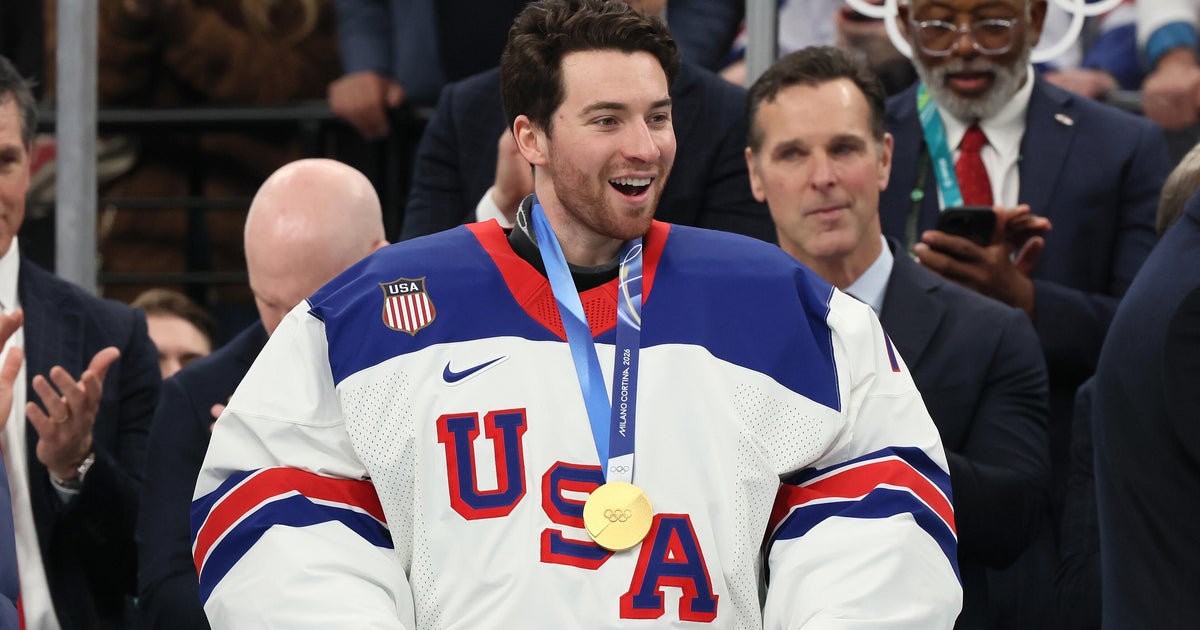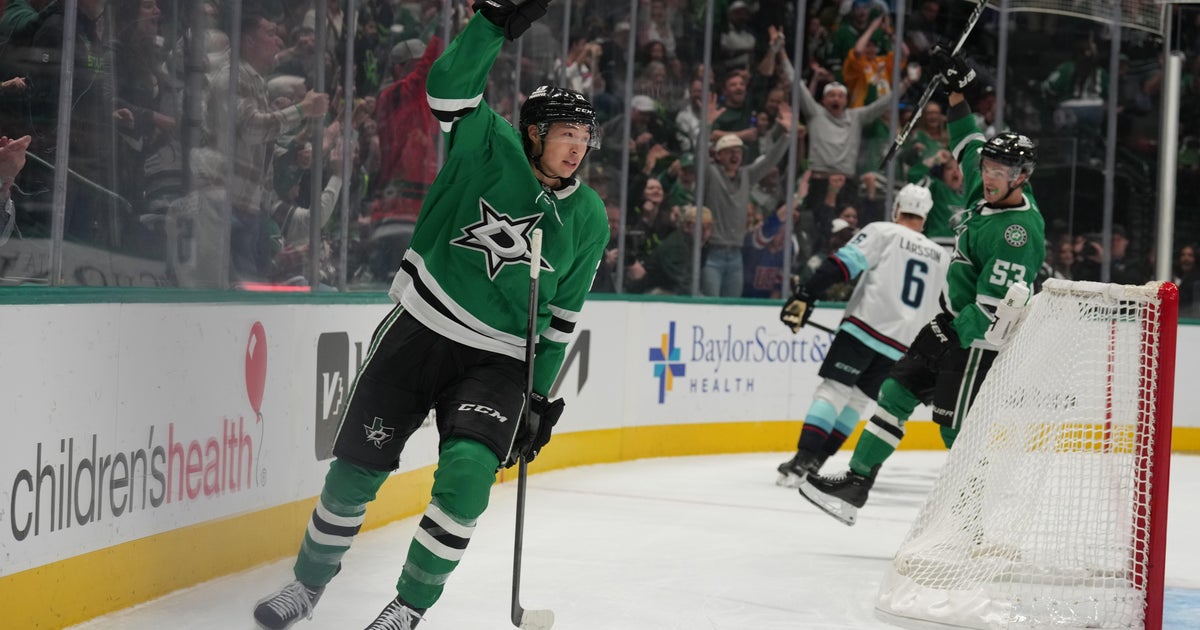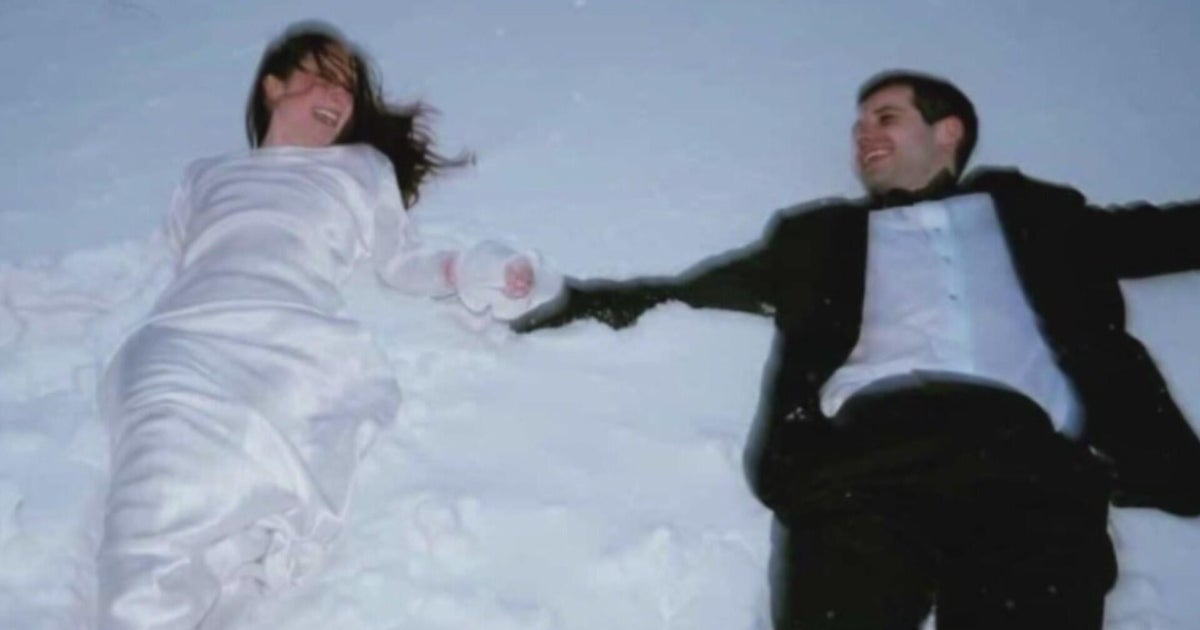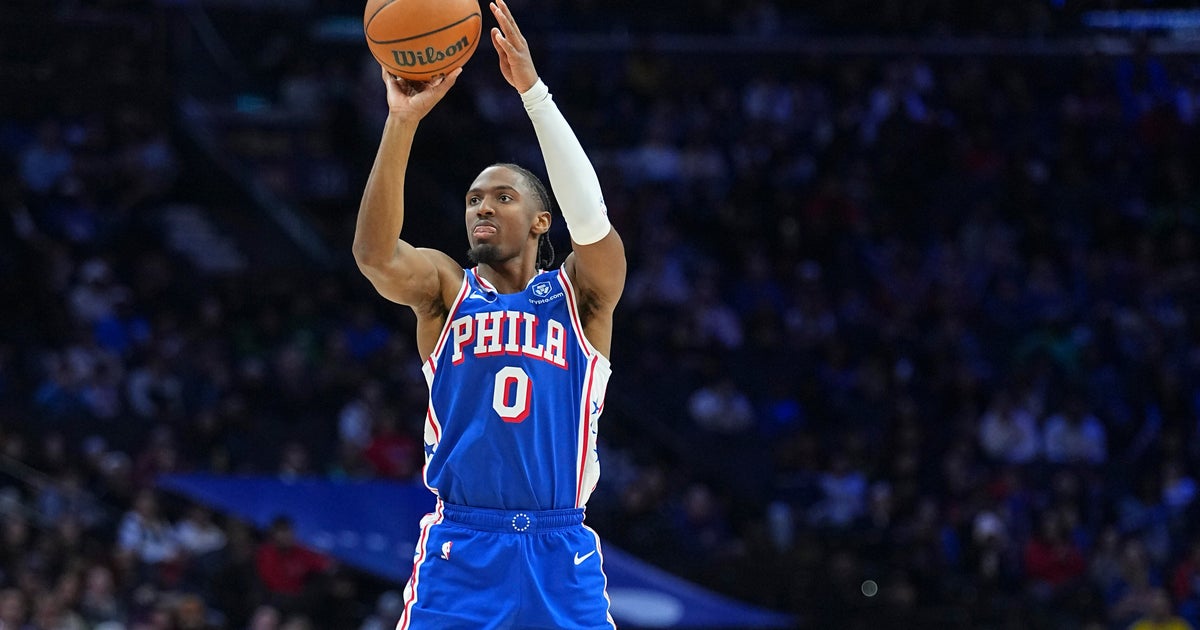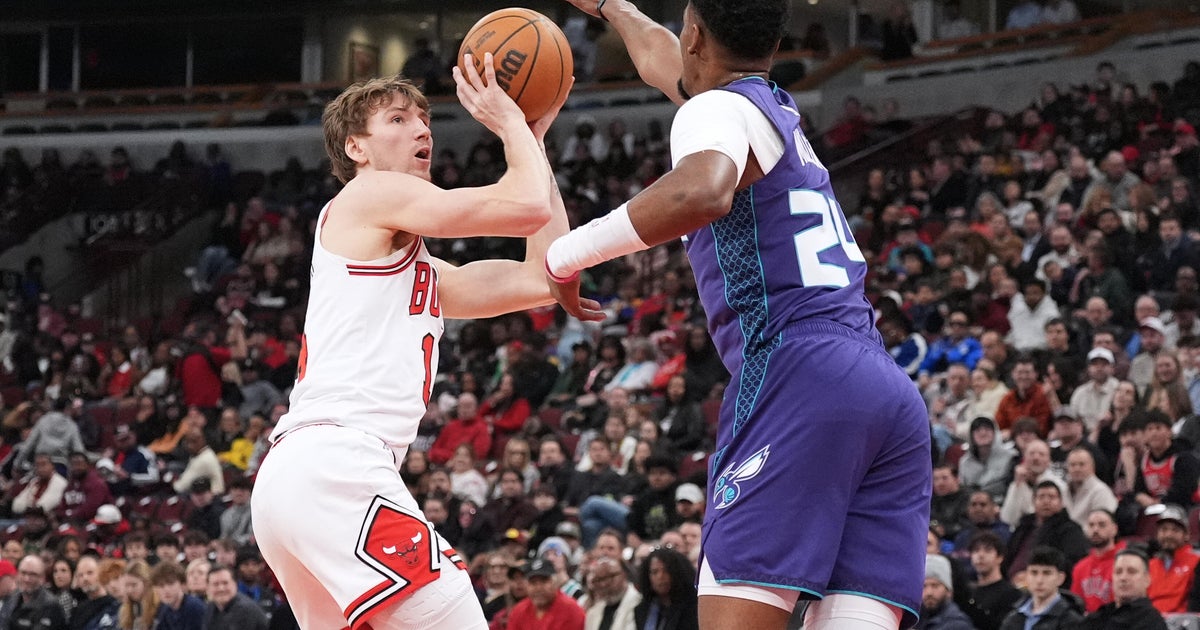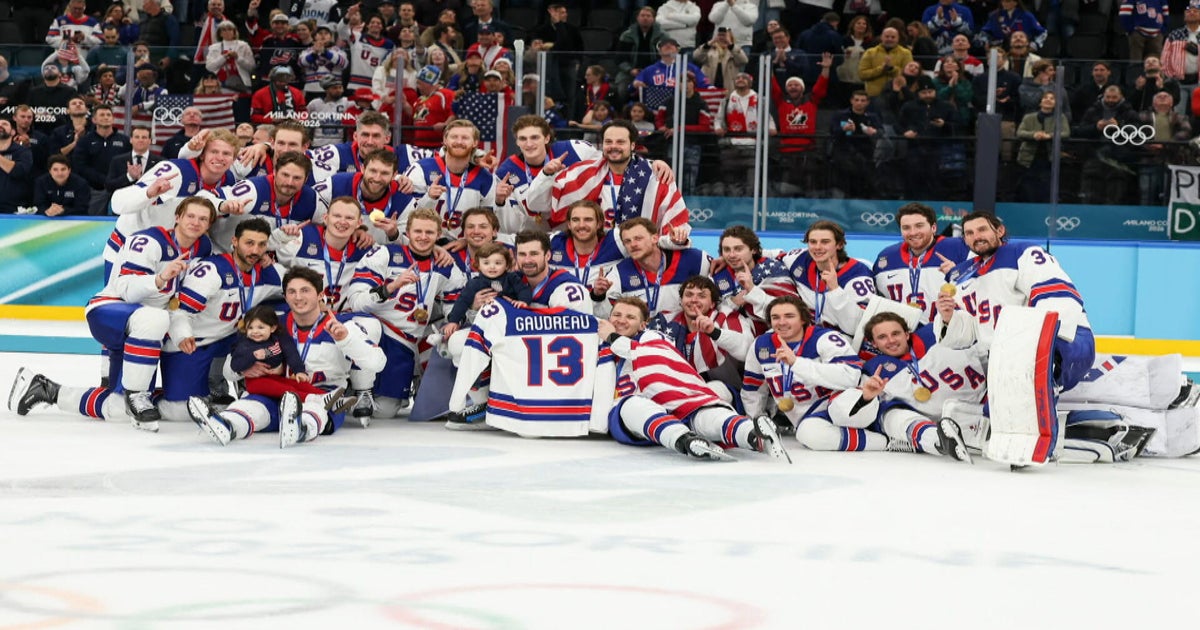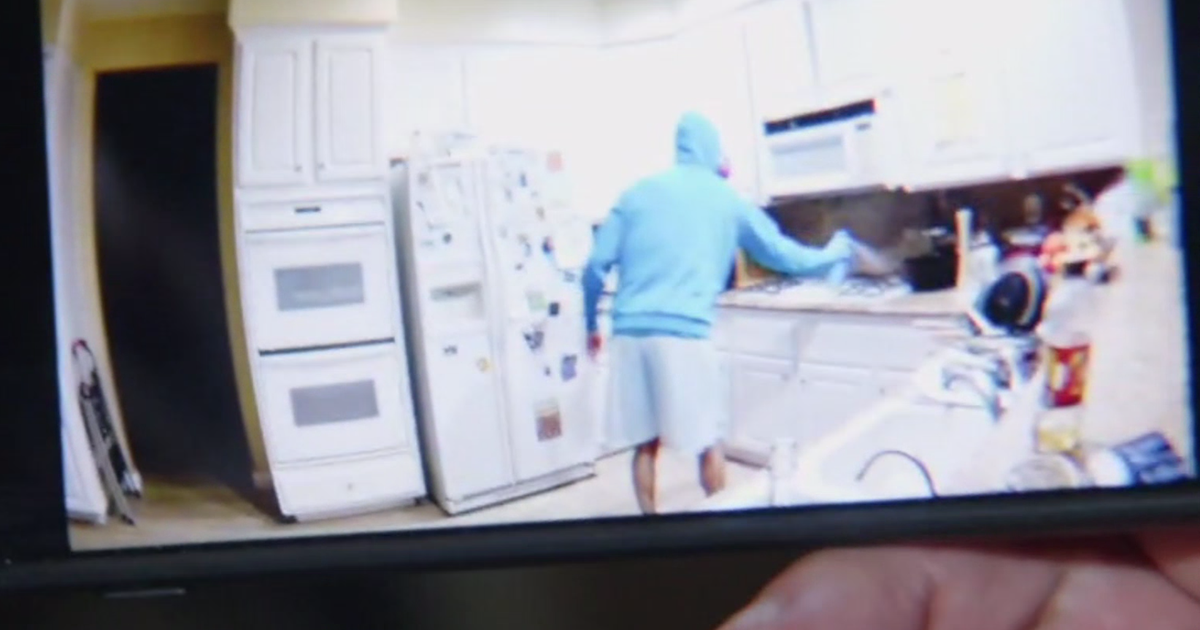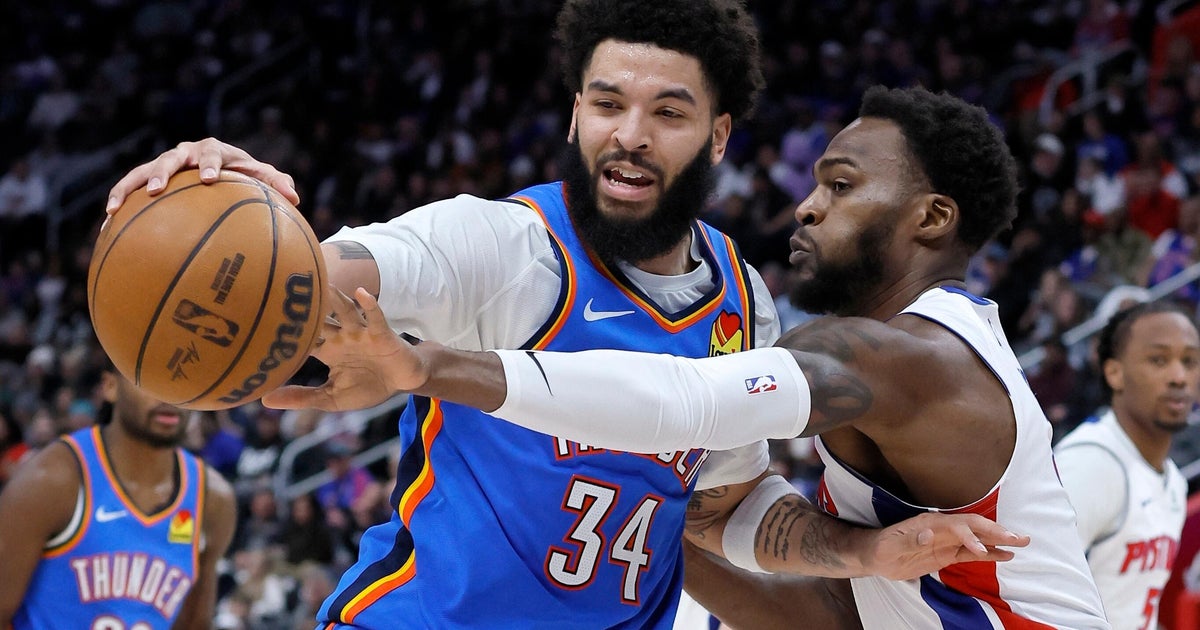Jordan Binnington Got A Free Pass For Coughing Up Game 1; He'll Need To Improve For Game 2
By Michael Hurley, CBS Boston
BOSTON (CBS) -- Around these parts, Tuukka Rask can't even let loose an ill-timed sneeze without scores of media members and hordes of fans jumping down his throat. Apparently out in St. Louis, the standards are a little different regarding the treatment and evaluation of their goaltender.
At least, it's hard to draw any other conclusion after monitoring the commentary surrounding Jordan Binnington after he kind of lost his team the game on Monday night.
Admittedly, that's an over-simplification. It's hard to wag a finger too sternly at the goalie when a team logs five shots over 35-plus minutes of a Stanley Cup Final game. Surely, the reasons for St. Louis' 4-2 loss in Boston were multitudinous.
At the same time ... in the third period of a 2-2 game ... you generally want your goaltender to swallow up a soft snap shot from 60 feet away. Asking a goaltender to hang tight to a chest-high shot like that in a Stanley Cup Final game is not asking too much.
But on Monday, Binnington fought the wobbling puck. He regurgitated the puck to the ice, allowing Noel Acciari to scrape it free and send a pass across the goalmouth to Sean Kuraly. Binnington dropped to his knees to prevent Acciari from scoring, which made it difficult for him to recover and fly post to post when the pass went to Kuraly. Binnington tried to kick his left leg to cover the left post, but it was too late. The puck was in the net, the game-winning goal had been scored.
Had Tuukka Rask been the netminder who picked up the secondary assist on an opponent's game-winning goal in a Stanley Cup Final game, the pitchforks would be out, the radio waves would be flaming, there'd be calls for Jaroslav Halak to start Game 2 and for Rask to be traded before the weekend.
That is only the slightest of hyperbole.
Out in St. Louis though, Binnington's gotten ... praise?
"One game into his Stanley Cup Final career, Binnington has showed the same resolve on the ice," wrote the St. Louis Post-Dispatch's Tom Timmermann, in a column titled, "Binnington showed no nerves under heavy pressure."
That column also totally absolved Binnington from any responsibility on the first two Boston goals, which is ... lenient.
While yes, it would have taken an acrobatic save to stop Connor Clifton's redirect in the second period, the fact is that Binnington played it exceptionally poorly. The netminder appeared to have been fully committed to stopping a Kuraly shot, which made him extremely late to react to the cross-ice pass to a streaking Clifton. Now, considering Clifton didn't exactly drive that puck home (he instead popped it into the air for a slow-motion goal), it's fair to say that a goalie who had been able to push off and drive post to post would have at least had a chance to keep that one out of the net.
Binnington, though, was left to helplessly swat his goal stick at a fluttering puck, allowing the Bruins to get right back into the game a little over a minute after St. Louis had taken what could have been a commanding 2-0 lead.
Obviously in a sport as hectic as hockey, real life doesn't go perfectly. And a goaltender who's wholly focused on stopping a shooter can't always be aware of where every streaking player is on the ice; to a certain degree, he has to trust the coverage of his defense.
Still, this isn't how you really want to ever end up in a game of this magnitude:
The second goal was much more forgivable, as Binnington's read on Charlie McAvoy's shot was proven fruitless before the puck even left McAvoy's stick, thanks to a slight deflection from the stick of Alex Pietrangelo. In slow-motion, high-definition replays we can watch such shots and remark that the goalie should have made the save, but in real time, is is impossible to react to such changes of direction, however slight they may be.
(It would be fair to question, though, why it took Binnington so long to get to his feet and grab his stick after going to the ice in a scramble just before the goal.)
Those goals happen. The third goal really should not have happened. All it did was cost St. Louis the game.
And instead of being blamed, Binnington is inspiring stories like this one to be written in The Washington Post: "Jordan Binnington came out of nowhere to save the St. Louis Blues' season." That story mentions the "fumbling a rebound" that led to the game-winning goal as a mere footnote (I suppose I'm guilty of doing that myself, but we're reflecting here), an inconvenient hurdle to what was otherwise a glowing feature.
Over on The Athletic, Pierre LeBrun wrote: "I don't know if I can fault him on any of the three goals."
What?
Why not?
(In perfect poetry, LeBrun criticized Rask's inability to track Brayden Schenn's shot on the first goal of the game -- which came from an above-average goal scorer from the most dangerous area of the ice.)
(Binnington also got some praise for ... exhibiting some effort in a Stanley Cup Final game. We're out here praising effort out now? Sheesh!)
Factor in that Binninton easily could have been penalized for hooking Brad Marchand or elbowing David Backes, and this was not a night to be celebrated. Certainly, 34 saves in a Stanley Cup Final debut is nothing to sneeze at, but as any outspoken detractor of Rask will tell you, statistics don't always tell the entire story.
And that story from Game 1 absolutely, unequivocally can't be told without noting that Binnington handed the puck to the Bruins seconds before the home team buried the game-winning goal. It was a mammoth mistake at a critical moment, yet it's been overshadowed by a helmet-less hit, an international debate about charging, and a quote from Binnington about Torey Krug's pupils. (What are we doing here?)
Again, the blame can be spread out up and down the Blues roster and coaching staff. They were gifted a second goal off an unforced turnover by David Pastrnak, and then they went to sleep for more than half of a Stanley Cup Final game. They had just 14 shots on goal through 56 minutes of the biggest hockey game of their season. That represents a lot of problems, none of which can be traced to the goaltender.
Yet still, the Blues were in position to win the game. They'd only need one shot to net the game-winner in that tied third period, if only Binnington hadn't coughed up a rebound on a soft shot from the ice directly in front of the St. Louis bench.
Binnington is young but he's not a child; he's 25 years old. He's a rookie but he's not inexperienced; he's got 164 AHL games under his belt, plus another 40 professional games in the ECHL. Yet in the Stanley Cup Final, he's unmistakable being handled with kid gloves.
The rookie can be better than he was in Game 1. For the Blues to win multiple games in this series, he'll need to be. It's OK to say so.
You can email Michael Hurley or find him on Twitter @michaelFhurley.

